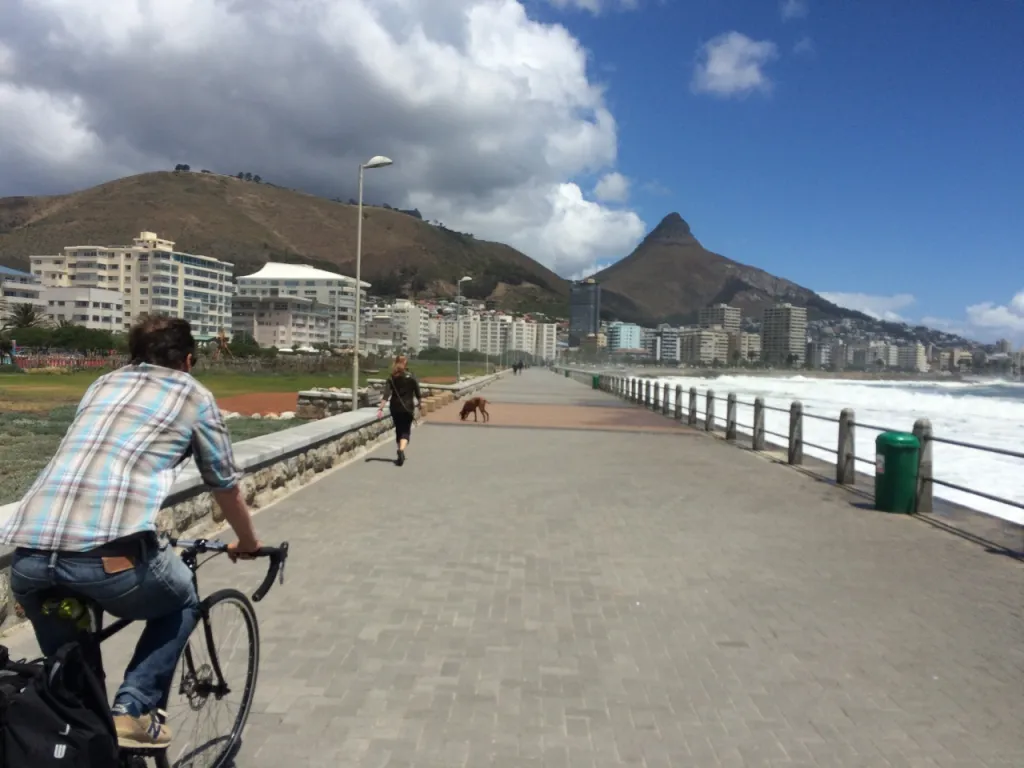The size of South Africa’s electric bicycle / c;ycling market is projected to reach USD 5.19 million in 2024. Cycling carries a rich history and deep symbolism within South Africa. Over the decades, bicycles have become a testament to the resilience of its people and a key tool in the pursuit of justice and freedom.
From its beginnings as an affordable means of transport for the working class to its role in social movements, the bicycle has profoundly influenced the lives of South Africans and the growth of cities like Johannesburg and Cape Town.

In the early 20th century, South Africa’s bicycle market experienced significant growth, driven by local manufacturers producing high-quality models. However, under apartheid, access to cycling infrastructure and bicycles was severely restricted for most of the Black population.
Cycling movements also emerged in underserved areas like Soweto and Khayelitsha, where young people found freedom and a sense of belonging through cycling.
These cycling communities strengthened social bonds and created safe spaces for sharing ideas and fostering a sense of community. In the post-apartheid era, cycling has continued to play a critical role in urban infrastructure development and the push for equitable mobility.
The use of bicycles has also gained traction as a sustainable alternative to traffic congestion and rising transport costs, especially in major South African cities. Organizations like the Johannesburg Urban Cyclist Association and the South African Cycling Federation have worked tirelessly to promote safe cycling, expand bicycle infrastructure, and enhance accessibility for all citizens. Thanks to their efforts, both Cape Town and Johannesburg have invested in projects to increase bike lanes and promote bike-sharing systems.
The 2013 South Africa National Household Travel Survey reported that around 1.4 million people in the country rely on bicycles as their primary mode of transport, a figure expected to grow. While cycling infrastructure remains more accessible in wealthier areas, local initiatives aim to close this gap, promoting cycling as a universal right.
The growing popularity of cycling is also tied to the rise of wellness and sustainability culture in South Africa. On social media, bicycles are not just a mode of transport but a symbol of healthy living and a tool for building more environmentally conscious and engaged communities.
Despite its expansion, South Africa’s bicycle market faces significant challenges. According to Statista, the projected global bicycle market growth of USD 71.42 million by 2024 contrasts with slower growth locally. High raw material costs, limited purchasing power, and inadequate cycling infrastructure in some regions hinder the market’s development.
In this context, demand for bicycles is closely linked to macroeconomic factors like consumer purchasing power and access to credit options. The industry also struggles with a lack of regulatory support, particularly affecting electric bicycles. Nevertheless, industry stakeholders remain optimistic that growing demand for sustainable transport will drive the adoption of bicycles as a viable and affordable urban mobility solution.
Globally, the bicycle mobility sector is projected to experience sustained growth. Between 2024 and 2029, revenue in this segment is expected to grow at an annual rate of 1.48%, reaching an estimated USD 76.86 million by 2029. By the same year, unit sales are forecasted at 0.31 million bicycles, with the average volume-weighted price in 2024 around USD 202.40, according to Statista.
Looking Ahead: Cycling Infrastructure Innovation and Sustainability
The popularity of electric bicycles, or pedelecs (for Pedal Electric Cycle), has risen significantly in South Africa, reflecting a global shift towards more efficient and environmentally friendly transport modes.
These vehicles address one of the biggest challenges of traditional bicycles: the difficulty of covering long distances or steep inclines with limited physical effort.
A report by Mordor Intelligence projects South Africa’s electric bicycle market to reach USD 5.19 million in 2024, with an annual growth rate of 13.56% through 2029. This expansion is driven by increasing awareness of physical activity benefits, environmental concerns, and the need to reduce urban traffic congestion.
Electric bicycles are particularly appealing to older individuals and those with physical limitations, as they reduce the physical strain of cycling. Rising fuel prices have also made electric alternatives more attractive, and cities like Cape Town are beginning to integrate these options into their urban infrastructure.
Companies like Pathway Cycles are leveraging this trend with sustainable business models based on electric bicycles. Pathway Cycles, South Africa’s first electric bike delivery service, has demonstrated how these vehicles can create jobs, reduce carbon footprints, and provide cost-effective transport solutions. This model not only minimizes pollution but also fosters inclusive mobility and supports the local economy.
Research also highlights the growing popularity of bicycles for commutes ranging between 5 and 15 kilometers, particularly as pandemic restrictions eased in 2021 and commercial operations resumed. This shift is attributed to benefits such as reduced carbon emissions, resource efficiency, and time savings in traffic, particularly during peak hours.
Looking ahead, South African bicycle manufacturers must invest in innovation and adapt their market strategies to local conditions to capitalize on the rising interest in cycling and sustainable mobility. Advances in technology and collaboration with government initiatives will be key to overcoming current challenges and promoting electric bicycles as a viable solution for urban transport in the country.
Watch this space for updates in the General News category on Running Wolf’s Rant.
Like what you just read? Buy us a coffee or Subscribe To Our Newsletter to stay in the loop.
Feel free to explore our website, check out our Featured Articles or scroll down to see the articles that are related to this article below. We've been around since 2008, so there's plenty of content.
Looking for a gift for that special person in your life? Check out Netflorist.co.za, South Africa's top online florist and gift service. They offer flowers, gifts, and hampers for all occasions AND reliable nationwide delivery.


